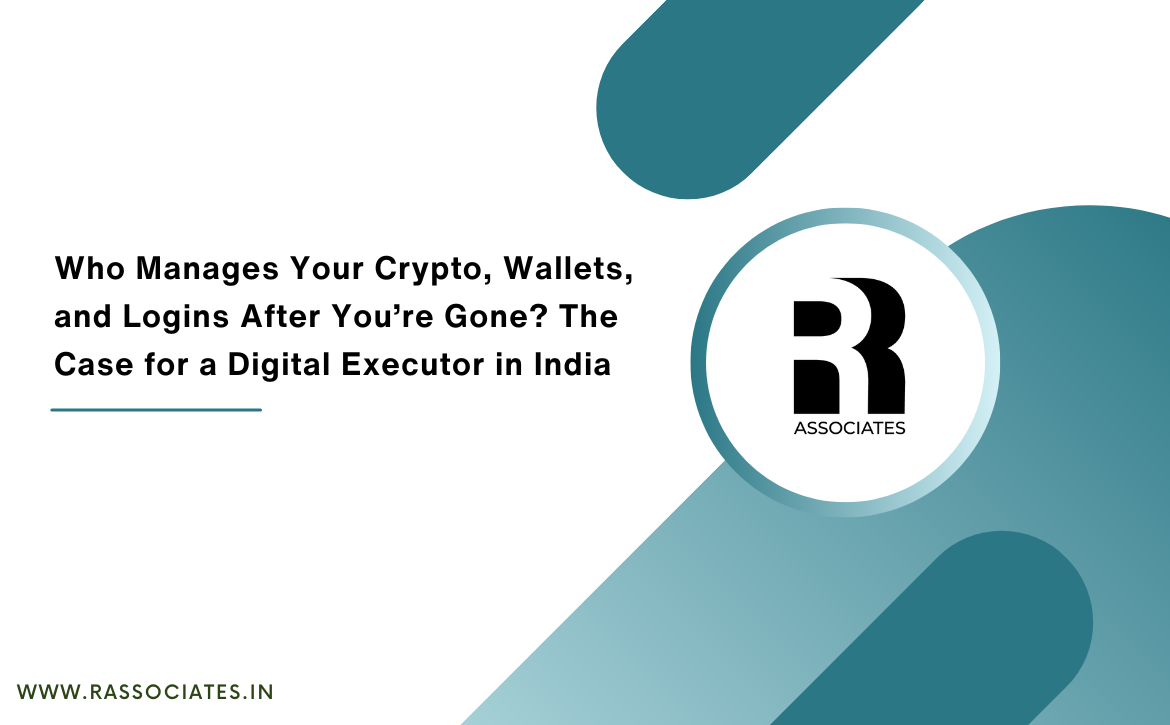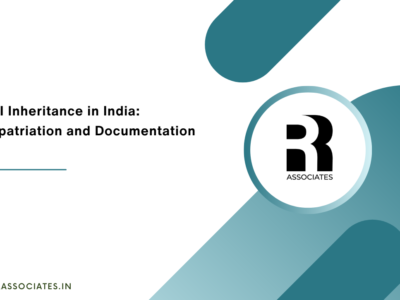
Who Manages Your Crypto, Wallets, and Logins After You’re Gone? The Case for a Digital Executor in India
Succession planning in India has long revolved around physical property, bank accounts, and investments. But today, a large part of family wealth sits in less visible places—crypto wallets, UPI balances, brokerage/demat accounts, subscription vaults, and even revenue-generating YouTube or Instagram handles. These are “digital assets,” and without planning, they often vanish into limbo when the primary holder dies.
A growing solution is to appoint a “digital executor” clause in a Will or Trust. This is the person legally authorised to access, manage, and transfer your digital assets after your death—without violating India’s privacy laws, cybercrime statutes, or custodian contracts like Google, Paytm, or Binance.
For families, this clause could mean the difference between heirs inheriting real value versus fighting a wall of locked accounts and expired passwords.
What Counts as a Digital Asset in Succession Planning
In India, digital assets are not yet defined under a single statute, but in practice, they fall into clear categories that families increasingly need to account for:
- Crypto holdings – Bitcoin, Ethereum, and other tokens stored in private wallets or exchanges. Without seed phrases or KYC-linked exchange accounts, these can be impossible to trace or transfer.
- UPI and mobile wallets – Paytm, PhonePe, Google Pay balances, which can hold significant funds but are governed by RBI and wallet-provider rules.
- Demat and brokerage logins – Securities are already governed by SEBI and depositories like NSDL/CDSL, but heirs cannot operate accounts without proper succession paperwork.
- Cloud and subscription vaults – Google Drive, iCloud, Dropbox, and SaaS accounts containing valuable intellectual property, family archives, or even professional data.
- Creator and digital revenue accounts – YouTube channels, Instagram handles, or Substack newsletters that can continue to generate monetisable value.
Each of these raises different legal and contractual hurdles. For example, crypto inheritance in India is complicated because there is no regulatory clarity on transfer after death, and private keys are outside the formal banking system.
By contrast, a demat login after death has established pathways—probate, succession certificates, or transmission requests. A digital executor clause is meant to bridge these varied realities by naming a custodian with lawful authority to deal with every digital asset category.
Appointing a Digital Executor in a Will or Trust
The law in India does not yet recognise a “digital executor” as a separate office, but nothing prevents you from explicitly empowering one through your Will or Trust. Under the Indian Succession Act, you can appoint executors with defined powers. Adding a clause that authorises a chosen person to manage digital assets ensures heirs have a clear legal representative to deal with custodians, regulators, and service providers.
A digital executor clause should do three things:
- Identify the digital assets – list categories, such as crypto holdings, UPI wallets, demat accounts, social media logins, and cloud storage. You need not disclose passwords in the Will itself (to protect privacy), but you can reference a confidential inventory maintained separately.
- Grant specific authority – state that the digital executor can access, transfer, close, or archive online accounts in compliance with applicable law. This avoids disputes where heirs have to guess whether such access would breach contracts.
- Provide succession mechanics – clarify whether the digital executor works alongside the main executor of the estate, or has exclusive control over digital assets. This separation prevents confusion when heirs try to approach banks, brokerages, or wallet providers.
For families holding crypto or running creator platforms, this clause can mean the difference between lawful inheritance and assets permanently locked away. In fact, estate planning for digital assets in India now often involves creating a Will for online accounts, where instructions for logins, data, and digital revenue streams sit alongside traditional property bequests.
Custodian Contracts, Privacy Norms, and Legal Limits
Even with a digital executor clause, heirs cannot simply demand access. Most digital service providers—whether Binance, Paytm, or Google—operate under strict Terms of Service (ToS) that typically prohibit password sharing or unauthorised access.
That is why formal succession documents matter. For example:
- Crypto exchanges may require a probate or succession certificate naming the heir or executor, along with death certificates and KYC records, before releasing holdings.
- UPI wallet after-death balances are governed by the RBI’s Prepaid Payment Instruments (PPI) regulations; heirs must provide succession documents to transfer funds to a linked bank account.
- Demat login after death is handled through SEBI’s transmission process, which requires submission of a death certificate and succession documents to the depository participant.
- Cloud or subscription accounts often fall back on the provider’s legacy policy (Google’s “Inactive Account Manager” or Apple’s “Digital Legacy” framework). If no nomination exists, heirs must approach the company with probate documents.
A properly drafted Will that appoints a digital executor ensures heirs are not left violating terms by brute-force logins or password sharing. This balance respects both the deceased’s privacy and India’s emerging norms on digital assets succession in India.
Conclusion
Digital wealth is no longer fringe—it sits at the heart of modern family estates. From crypto inheritance in India to UPI wallets after death and demat logins, the reality is that most financial and personal value today flows through digital platforms.
Without a plan, these assets risk being locked away indefinitely, either lost in forgotten servers or blocked by service providers enforcing privacy rules.
A digital executor clause provides heirs with lawful authority to claim what belongs to them, while respecting custodian contracts and India’s cyber laws. Families that adapt early will ensure smooth transitions across both the physical and digital legacies they leave behind.




